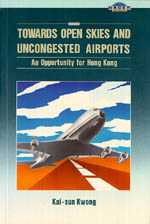The Hong Kong
Centre for Economic Research
HKU Business School
The University of
Hong Kong
Pokfulam Road, Hong
Kong
Tel: (852) 2547 8313
Fax: (852) 2548 6319
Email:
hkcer@econ.hku.hk
Director:
Prof. Y.C. Richard Wong
Executive Director:
Dr. Alan K.F. Siu
香港經濟研究中心
香港薄扶林道港大經管еёй™ў
電話: (852) 2547-8313
傳真: (852) 2548-6319
電子郵址:
hkcer@econ.hku.hk
中心主任: 王于漸教授
中心副主任: 卲啟發博士 |
|
|
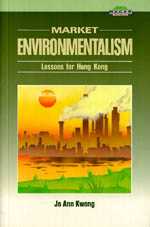
Market Environmentalism: Lessons
for Hong Kong
by Jo Ann Kwong
(English/Chinese) 1990
|
A study of free market approaches to
environmental problems and its application to Hong Kong.
Special emphasis on water, air and noise pollution.
|
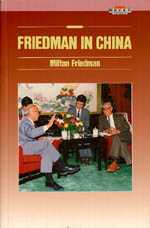
Friedman in China
by Milton Friedman (English/Chinese) 1990
|
A collection of Milton Friedman's
lectures delivered in China during his two visits in
1980 and 1988. Includes Friedman's memorandum to the
purged Chinese Communist Party General Secretary Zhao
Ziyang and a transcript of their meeting in 1988.
|
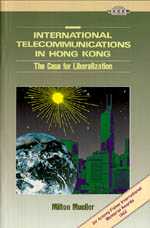
International Telecommunications in
Hong Kong: The Case for Liberalization
by Milton Muller (English/Chinese) 1991
|
A study of the criticality of
international telecommunications in Hong Kong. The
author analyzes the theory and practice of
liberalization in telecommunications, examines the price
of monopoly in Hong Kong, and considers why
liberalization would be highly desirable. Awarded second
place, 1992 Sir Antony Fisher International Memorial
Awards. |

中國經濟改革 -
分析、反省、前瞻
徐滇慶‧雷鼎鳴‧張欣合編 (中文版) 1991
|
中國大陸自七十年代末期展開一連串經濟改革,從根本上改變了中國經濟的面貌,也寫下了市場經濟在社會主義國家中蓬勃發展的先例。然而,中國的經濟改革和開放,欠缺一個完整的理論作為根據,也沒有前人的寶貴經驗可供參考。此外,加上政治對經濟多方面的影響,使中國的經濟在改革十年後漸漸迷失了方向。在探討中國經濟的新出路時,改革開始以來的經驗,成為不可多得和必要的參考材料。 |

Health Care in Hong Kong: An Economic
Policy Assessment
by Joel Hay
(English/Chinese) 1992
|
A study of the critical problems
facing Hong Kong in health care stemming from the public
provision of medical and health services. The author
proposes to adopt a publicly subsidized decentralized
competitive insurance system called ChoiceCare to
improve efficiency and allow greater choice for
patients. |

Air Cargo and the Opening of China
by Joseph P.
Schwieterman (English) 1993
|
The building of a new airport in Hong
Kong creates an opportunity to review the existing
practices and policies regulating the allocation of
landing and takeoff slots, access to terminals and
gates, and air services agreements for passenger and
cargo flights. The issue gains additional importance not
only because it has implications for maximizing the
return on the investment in the airport, but also for
the future development of Hong Kong as an economic
centre in the Asia-Pacific region. |

Planning Rules and Urban Economic
Performance:
The Case of Hong Kong
by Samuel R. Staley (English/Chinese) 1994
|
This book explains the contractual
basis of the Hong Kong urban and land planning system,
and how it encourages growth by protecting private
property rights and ensuring economic markets work
smoothly and efficiently. It includes a critical
assessment of the recommendations proposed by the Hong
Kong Government in its Comprehensive Review of the Town
Planning Ordinance.
|
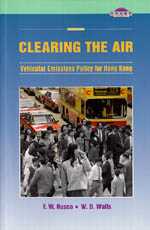
Clearing the Air: Vehicular Emission
Policy for Hong Kong
by F.W. Rusco and
W.D. Walls (English) 1995
|
A study of vehicular emissions. It is
found that air quality in Hong Kong compares well to
that of most major cities in the industrialized world.
Besides, the authors analyse effects of different public
policies on air pollution and show effective ways for
pollution abatement. Published by the Chinese University
Press in 1995.
|
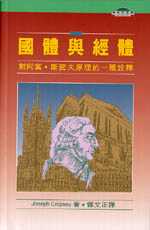
國體與經體 -
對阿當‧斯密夫原理的一種詮釋
Joseph Cropsey著‧鄧文正譯
(中文版) 1995
|
阿當‧斯密夫是近代經濟學的鼻祖,引用他的著作來替經濟政策辯護的論著很多;然而,探討他所構思的社會經濟理論背後的道德理論基礎的論著卻很少。本書作者正是從道德理論的層面來探討斯密夫社會經濟學說的立論基礎。 |
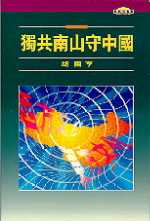
獨共南山守中國
胡國亨著 (中文版) 1995
|
二十世紀末的今天,西方文化及其衍生的現代化成為世界文化的主流已是不爭的事實。西化、現代化、國際主義、全球文化、世界人等等的觀念,已滲透我們的社會;西方的基礎觀念,如人權、自主、平等、民主、法治、進步、理性等亦成為我們不少人中不再置疑的價值觀;西方的科學、技術、管理方法、法律制度、經濟發展模式、商業及金融等規則,已經成為我們的典範和學習的對象 |
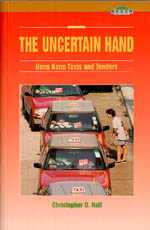
The Uncertain Hand: Hong Kong Taxis
and Tenders
by Christopher D. Hall (English) 1996
|
This study examines the nature and
effect of taxi regulation. The author finds that the
Hong Kong government's regulation of the taxi business
has not only increased the risk of owning taxi licences,
but also reduced the quality of service. It is suggested
that market mechanisms in the taxi industry should not
be ignored. |
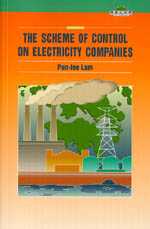
The Scheme of Control on Electricity
Companies
by Pun-lee Lam
(English) 1996
|
A study of regulatory mechanism of
Hong Kong scheme of control on electricity industry and
its implication for economic efficiency and consumer
interests. Measures that can improve this mechanism as
well as to enhance competition in the supply of
electricity were suggested.
|

Competition in Hong Kong's Gas
Industry
by Pun-lee Lam
(English) 2000
|
This study reviews the liberalization
of the gas industries in the United States, United
Kingdom, Australia, New Zealand, Japan, South Korea and
Taiwan. Although the industry, ownership, and regulatory
structure in Hong Kong may not be the same as in those
countries and areas, the authors believe lessons can be
learned from their experiences. This monograph is a
useful reference for government officials, policy makers
and people involved in the development of fuel supplies
in Hong Kong.
|
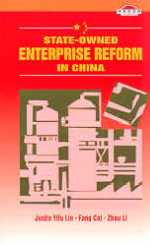
State-Owned Enterprise Reform in
China
by Justin Yifu Lin,
Fang Cai, Zhou Li (English/Chinese) 2001
|
This book is a continuation of the
authors' earlier publication, The China Miracle:
Development Strategy and Economic Reform (1996). In
this volume, the authors review the historical evolution
of the SOEs, analyze the current problems, and suggest
the direction for future reforms. They argue that
further reforms can be achieved by eliminating the
"unfair competition conditions" confronting the SOEs
rather than by realigning the corporate ownership rights
as so often suggested.
|
|
È
È
È
È
È
È
È
È
È
È
È
È
È
|
|
The
Hong Kong Economic Policy Studies Series
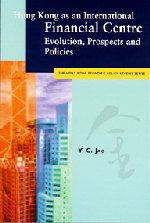
Hong Kong as an International Financial
Centre: Evolution, Prospects and Policies
by Y.C. Jao
(English/Chinese) 1997
|
This books asks: Why has Hong Kong
succeeded in becoming an international financial centre (IFC)?
Will this status survive after 1997? Will Hong Kong meet the
competition from other IFCs? This book provides objective
and balanced answers and makes seventeen policy
recommendations. |

Technology and Industry
by Kai-sun Kwong
(English/Chinese) 1997
|
This book asks: Must Hong Kong keep
manufacturing to survive: What industries and jobs are at
stake in the "service vs hi-tech" strategy debate? The
answer is we should have both; but the goods sector must
take a "design-intensive" strategy with talents from China.
|
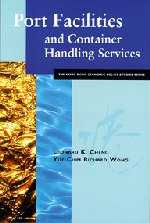
Port Facilities and Container Handling
Services
by Leonard K. Cheng &
Richard Y.C. Wong (English/Chinese) 1997
|
Hong Kong has the worlds’ busiest
container port. Should it build more container terminals
despite new container ports being developed nearby in China
and Taiwan? How many and how soon? The authors analyze the
container handling industry, present the projections of
container cargoes, and offer policy options which favour
more competition.
|
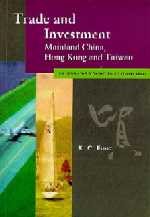
Trade and Investment: Mainland China,
Hong Kong and Taiwan
by K.C. Fung
(English/Chinese) 1997
|
The book raises and answers questions
like: What is the nature and trend of trade and investment
within Greater China? What local and international laws
govern their business activities? How great has their mutual
economic impact been? What affects Greater China's trade
with the U.S., Japan and the rest of the worlds? How big
really are the trade deficits, and what are the key issues
of the China trade debate?
|

Competition in Energy
by Pun-lee Lam
(English/Chinese) 1997
|
The author reviews the history of the
government's regulatory "Scheme of Control" and asks: What
should the right mix of regulation and competition be? And,
how to resolve the conflicts between the private utility
firms and the demanding consumers? Suggestions made by the
author are informed by Hong Kong's economic relations with
China and by the British and American experiences in energy
deregulation and privatization.
|
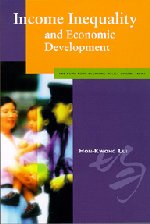
Income Inequality and Economic
Development
by Hon-kwong Lui
(English/Chinese) 1997
|
Has income inequality in Hong Kong risen
or declined? The author wonders if income inequality has
come down because of Hong Kong's rapid economic growth which
enabled the government to invest heavily in education and
public housing. His economic analysis concludes ironically
otherwise: Income inequality has risen substantially despite
the well-intended education and housing policies. Types and
degrees of income gaps in Hong Kong (1976-1991) are
documented and some suggestions are made.
|
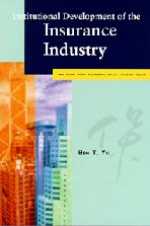
Institutional Development of the
Insurance Industry
by Ben T. Yu
(English/Chinese) 1997
|
The author provides an economic and
institutional analysis based on transaction cost theories,
using official and survey results. The book is the first to
review the history, practice and regulation of the insurance
industry of Hong Kong in relation to the China factor.
Policy issues discussed are: setting commission rates,
reorganizing the middlemen market, exploring new organizing
the middlemen market, exploring new organizational
structures (mutuals, captives, and reinsurance), and
preparing for the Mandatory Provident Fund.
|
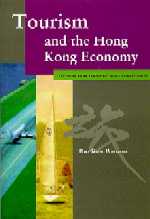
Tourism and the Hong Kong Economy
by Kai-sun Kwong
(English/Chinese) 1997
|
This book analyzed characteristics,
strengths, and constraints of the tourism sector of Hong
Kong. It also examines Singapore's strategy on tourism and
makes five sets of recommendations for Hong Kong - having an
integrative mindset in developing tourism, removing barriers
for people to come to Hong Kong, tapping China's potentials
in tourism, becoming more attractive as a tourist location,
and protecting the environment.
|
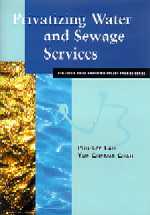
Privatizing Water and Sewage
Services
by Pun-lee Lam,
Yue-cheong Chan (English/Chinese) 1997
|
How far should the Hong Kong Special
Administrative Region (HKSAR) government privatize its
public utilities? The authors examine the British and
American experiene in privatizing public utilities. They
also review Hong Kong's experience in privatizing utilities
such as car parks and road tunnels. The book argues for the
privatization of the water industry.
|
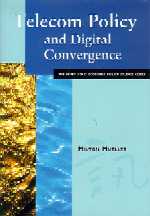
Telecom Policy and Digital
Convergence
by Milton Mueller
(English/Chinese) 1997
|
Digitalization of information is eroding
old boundaries between broadcasting, postal systems,
telecommunications, publishing, and banking. Such a "digital
convergence" deeply affects the telecommunication and
broadcasting policy in Hong Kong. This book analyzes the
technological drivers of the convergence process, and
forecasts the impact of digital convergence on the market
structure of communication, media, computer and information
industries. Making a comprehensive critique of Hong Kong's
restrictive licensing regime in teleommunications and
broadcasting, the book offers concrete proposals for
reforming laws and regulations governing the new
digital-media services. |

Town Planning in Hong Kong: A
Critical Review
by Lawrence Wai-chung
Lai (English/Chinese) 1997
|
This book addresses Hong Kong's hottest
economic issue today: land-use planning and its effects on
land supply and the housing market. How land-use planning
has changed the contractual nature of property development
is reviewed. The three-level planning system and the
conflicts between planning ordinances and other development
strategies are criticized. The book argues that the Town
Planning Bill should be shelved and urges that an economic
appraisal of the planning system be carried out. |
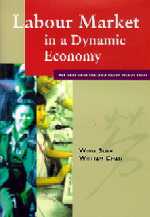
Labour Market in a Dynamic
Economy
by Wing Suen and William
Chan (English/Chinese) 1997
|
Hong Kong's success of being one of the
fastest growing economies in the world is attributed to the
resilience and adaptability of the labour force. In search
of Hong Kong's key to continued success and future
prosperity, the authors reconsider the history and evolution
of the labour market, and weigh the available options for
the post-1997 era. They find that despite all the
breathtaking changes, the old but tested prescriptions of
free market economics still offer the surest solution for
the efficient allocation of labour resources. |
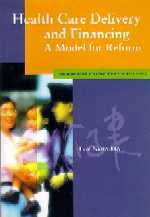
Health Care Delivery and
Financing: A Model for Reform
by Lok-sang Ho
(English/Chinese) 1997
|
Despite low mortality, Hong Kong is
ageing fast and pressures to improve health care are
mounting. Should taxes be raised or social services be cut?
Or, instead, should the public bear higher cost by buying
more health insurance? What about other trade-offs such as
between hi-tech medicine and preventive medicine? Professor
Ho analyzes the economics of these questions. He also
suggests better ways to co-ordinate the public and the
private health care systems. The key lies in an innovative
financing scheme (UEBHIP) to handle rising health care
expenditures.
|
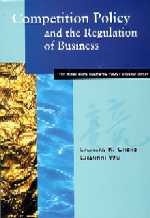
Competition Policy and the
Regulation of Business
by Leonard Cheng and
Changqi Wu (English/Chinese) 1998
|
Hong Kong's future prosperity more than
ever before depends on the efficiency of its financial
services, professional services, public utilities and other
services. Providing quality services is crucial to Hong
Kong's role as a business hub. Are its key economic sectors
sufficiently competitive? Does it need a comprehensive
competition policy and a competition law? Have the
regulated industries been effectively regulated to enhance
economic welfare? Can regulation be replaced by
competition, and how? The authors analyze the situation of
competition and regulation in ten industries and business
sectors. Many recommendations are made. |
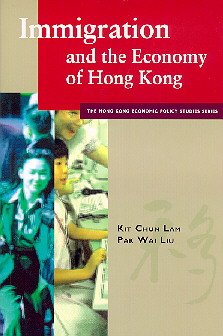
Immigration and the Economy of
Hong Kong
by Kit-chun Lam and Pak-wai
Liu (English/Chinese) 1998
|
Immigration has not
been an important component of the population in Hong Kong.
Since 1995, immigration adds more people to the population
of Hong Kong than natural increase each year. Is there any
adverse economic impact of immigration on Hong Kong? The
authors examine the effect of immigration on wages and
employment in the local labour market. The book argues that
by adopting a three-track immigration policy, the growth of
labour force will help maintain economic growth in Hong
Kong.
|
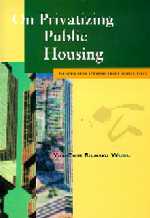
On Privatizing Public Housing
by Y.C. Richard Wong
(English/Chinese) 1998
|
More than half of the
people of Hong Kong live in heavily subsidized public
housing and many are still waiting to be accommodated.
This study shows that, unfortunately, the public
housing programme has failed to meet basic objectives of
efficiency and equity. How can privatization address these
objectives? Considering political
consequences, economic benefits, equity effects, social
impact and moral dimensions, the author ponders over the
hottest economic issue of Hong Kong today and presents
several specific policy recommendations.
|
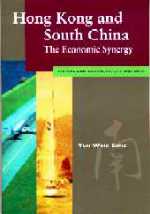
Hong Kong and South China: The
Economic Synergy
by Yun-wing Sung
(English/Chinese) 1998
|
A powerful Chinese
Economic Area (CEA) comprising Hong Kong, Mainland China and
Taiwan is emerging with Greater Hong Kong (Hong
Kong-Guangdong) as the core. This book asks questions like:
What is the nature and trend of trade and investment within
the CEA and within Greater Hong Kong? What are the barriers
to the economic integration of the CEA? What policies
should be pursued to enhance economic integration? What is
the prospect of Hong Kong as China's gateway? Will Shanghai
threaten Hong Kong's role? What are the effects of the
Asian financial crisis on the CEA?
|

Retirement Protection: A Plan for
Hong Kong
by Francis T. Lui
(English/Chinese) 1999
|
What
are the economic and business consequences of the
"retirement boom" that will hit Hong Kong soon? What sort
of retirement plans are viable and acceptable to employers,
employees and the government? Drawing on the experiences
with social security systems in many countries, this book
evaluates Hong Kong's old pay-as-you-go (PAYG) proposal,
Singapore's central provident fund (CPF) scheme, and the
mandatory provident fund (MPF) plan. Details of the MPF
legislation of 1998 are given, along with policy
recommendations and suggestions for stakeholders in the
private and public sectors. |
|
